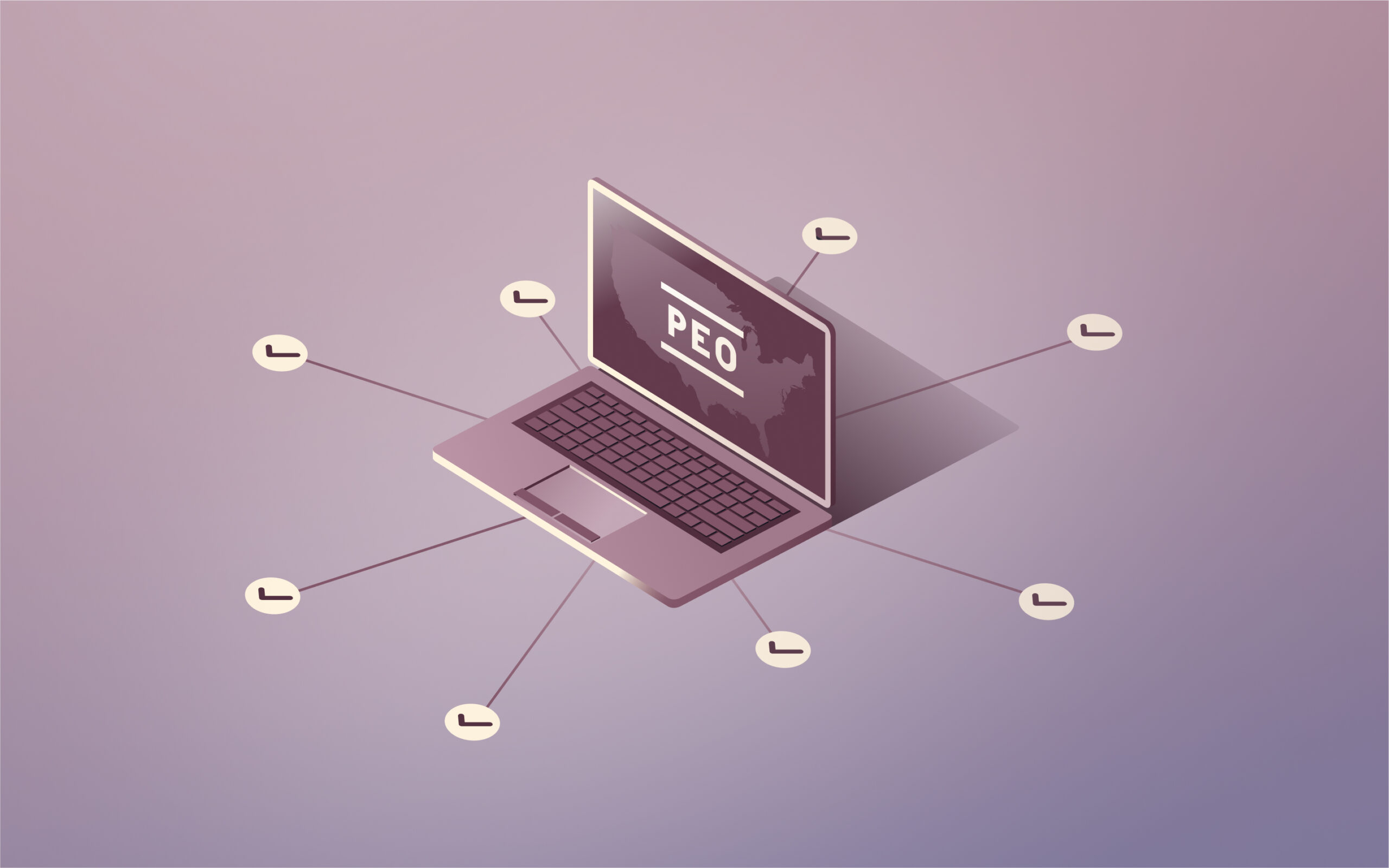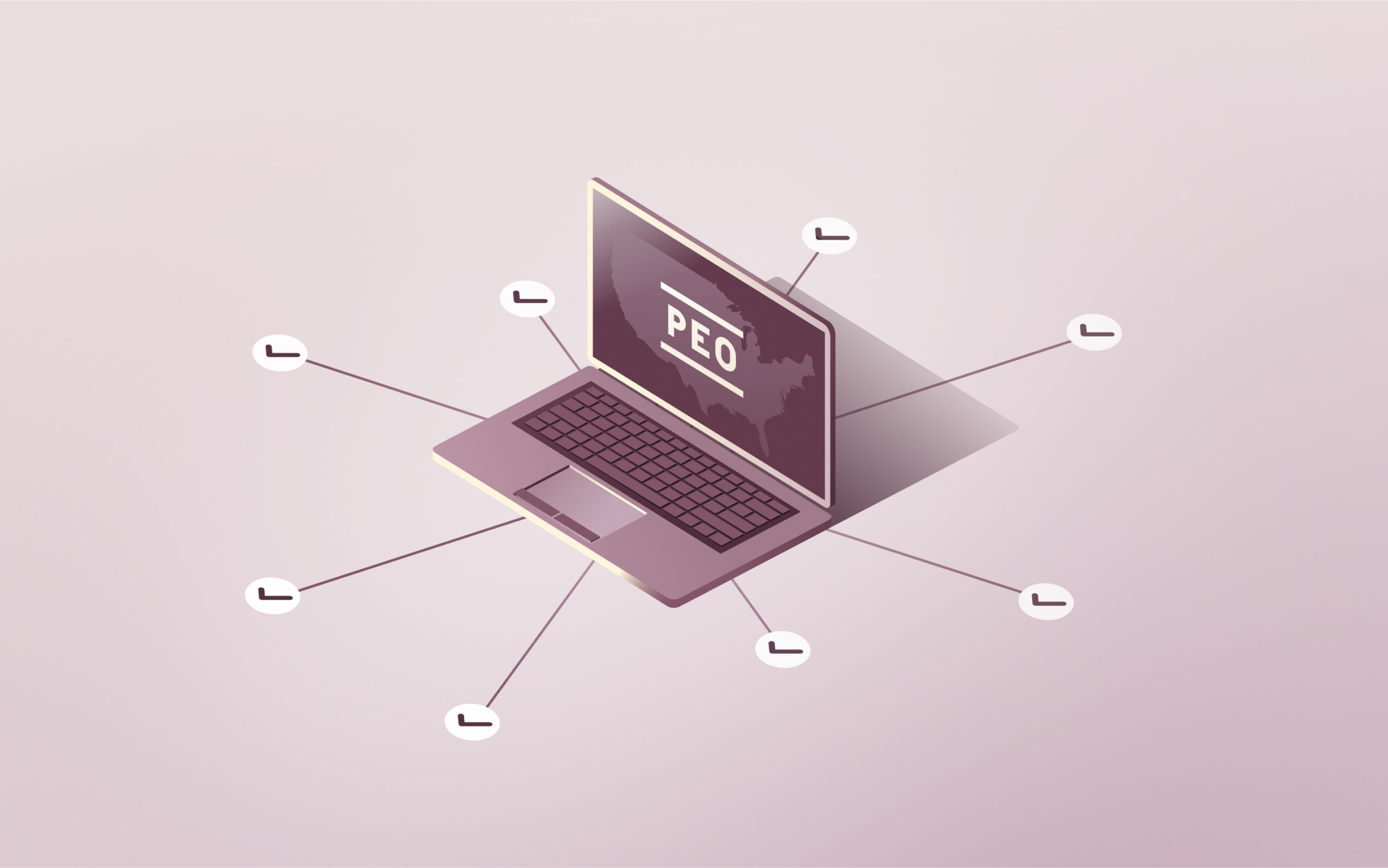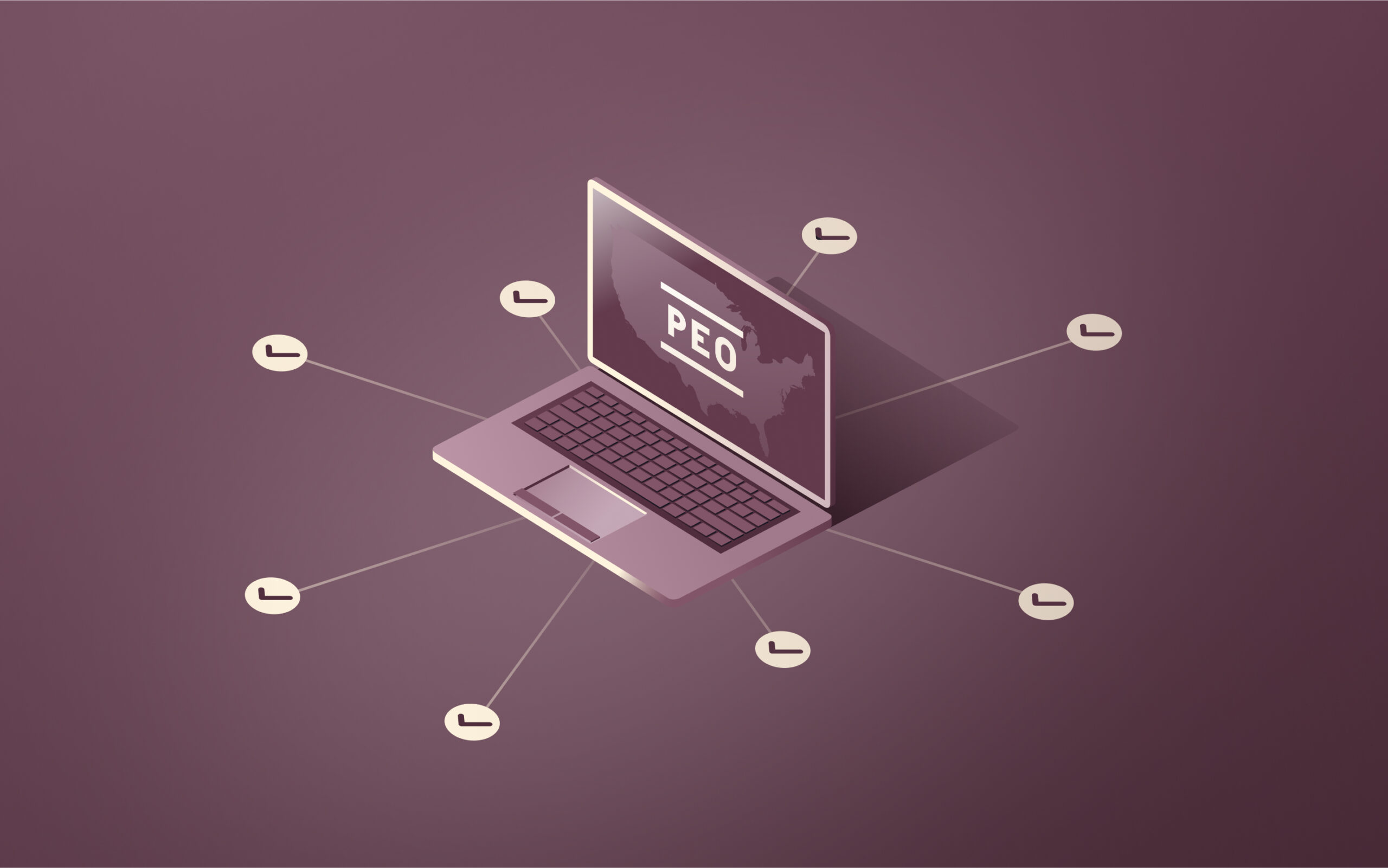PEO in New Hampshire [2025]

New Hampshire is considered one of the friendliest states for businesses in the entire US. That said, from the capital of Concord to smaller cities like Nashua, employers still have to keep up with administrative demands, including offering employee benefits, workers’ compensation insurance, and dozens of other employment-related tasks.
For companies that find themselves struggling under this weight, there are professional employer organizations (PEOs). PEOs can help ease administrative HR burdens for small and mid-sized businesses by streamlining and automating payroll services, benefits administration, compliance management, and much more.
Wondering how a PEO service can help your New Hampshire business? We’ll dive into all the advantages of using a PEO and how to select the best one for your needs in the Granite State. Rippling PEO stands out for its seamless hiring and onboarding processes—from automatic state tax registration to remote IT management.
Benefits of using a PEO in New Hampshire
Utilizing a New Hampshire PEO can help you access better employee benefits, decrease busy work for your human resources team, and gain crucial HR expertise.
Offload administrative HR work
When a business partners with a PEO, they establish a co-employment relationship. Under this arrangement, your business acts as the worksite employer and retains complete control over who you hire and let go, what salaries you pay, and business strategy and operations—such as marketing, sales, R&D, customer service, etc.
The PEO becomes the administrative (or statutory) employer of your staff. By employing them under its federal employer identification number (EIN), the PEO can legally handle benefits, payroll, compliance, and other human resources tasks.
PEOs typically leverage a mix of technology, experience, and tried-and-true processes to manage these HR functions efficiently. With less repetitive and manual admin tasks to worry about, your team has increased bandwidth to focus on important strategic work.
Better employee benefits, at a lower price
There are just over 500 PEOs in the US today, and they employ a massive 4.5 million people. Because of their size, PEOs have significant bargaining power to negotiate with insurance providers—allowing them to access more affordable benefits plans for their client businesses.
PEOs also utilize their scale to provide access to comprehensive employee benefits packages, often including life and health insurance, workplace benefits, retirement plans, dependent care, and much more. Robust benefits plans are crucial for competing in a tough employment market, but are often challenging for smaller businesses to procure independently.
Considering New Hampshire is a hub for education, healthcare, and insurance companies, employers in the state have to offer especially competitive health insurance benefits to stay ahead of other companies when attracting and retaining the best talent.
Worry-free compliance with New Hampshire laws
PEOs not only assist in keeping you aligned with federal employment and labor laws, but they also specialize in local and state regulations. That means the right PEO can keep you compliant with employment and labor laws in New Hampshire.
What’s so difficult about compliance? Mostly, it’s that the many details are intricate and constantly changing. While New Hampshire’s laws closely mirror federal laws, employers are still responsible for tracking payroll, mandatory benefits, taxes, etc. This becomes even more complex when you employ remote workers and independent contractors.
A PEO like Rippling automatically identifies compliance slip-ups, ensuring you’re always compliant on the federal, state, and local levels. Generally, PEOs offer legal and compliance support for a myriad of processes, including:
- Payroll regulations, like accurately classifying employees and contractors, handling payroll taxes, issuing and filing tax forms on time, and adhering to other wage laws like minimum wage and overtime rules
- Benefits laws, like following the federal Affordable Care Act (ACA) and Family and Medical Leave Act (FMLA), COBRA, FSA, HSA, and any other benefits-related requirements
- Labor laws, like accessing workers’ compensation insurance (New Hampshire has a decently strict workers’ comp law), exhibiting state-mandated labor posters, and following Equal Employment Opportunity (EEO) laws
Breaking any of these laws can come with serious penalties. Failing to maintain workers’ compensation insurance, for instance, can result in fines of up to $2,500 and up to $100 per employee for every day they weren’t covered. Additionally, the IRS estimates that about 40% of small businesses pay payroll penalties annually. A PEO can ensure you don’t end up paying the price of non-compliance.
Dedicated support team
As we’ve touched on already, PEOs possess extensive expertise in the HR field. By partnering with a PEO, you can tap into this wealth of knowledge without significantly growing your staff or your expenses.
A PEO not only helps save time and reduce HR costs, but it can also provide valuable insight into optimizing benefits administration, training staff, evaluating safety protocols, and addressing other challenges HR teams encounter.
What to consider when evaluating a PEO service in New Hampshire
There are, of course, a wide array of PEO services available to you. To select the most suitable PEO for your New Hampshire business, consider the following:
- Your business requirements: What’s most important to your business? Is it workers’ comp compliance? Is it offering stellar benefits to compete with other New Hampshire employers? Whatever your aim, here are some common services offered by PEOs:
- Payroll processing
- Tax filing and compliance
- Administration of benefits
- Recruitment and onboarding processes
- Safety compliance and risk management
- Monitoring time and attendance
- HR outsourcing
- Budget constraints: PEOs have different pricing models, generally charging per employee per month or a percentage of each payroll run. It's also crucial to project your future growth plans, so you know whether you can continue to afford the PEO as your headcount increases.
- PEO experience and credibility: Research whether a PEO has experience and a good reputation with New Hampshire businesses. You want to ensure they can handle things like medical leave regulations and tight workers’ comp rules. Platforms like G2 and Capterra are good places to gauge the experience other businesses have had with a PEO.
- Benefits: Assess the quality, variety, and cost of the benefits packages you can access through the PEO. And more importantly, ensure they meet your employees’ needs.
- Benefit renewal rates: Similarly, investigate how transparent a PEO is about the increase in benefit plan costs after the first year. Some PEOs significantly raise renewal rates once you’re ingrained into their system. You don’t want to be stuck with skyrocketing costs or having to find a new solution after just one year.
- PEO integrations: How well can a PEO integrate into your existing technology stack? Considering lots of big PEOs today are using tech from the 1980s, this is a critical question to ask.
- Does the PEO specialize in certain industries? If you’re in a niche, such as healthcare or education, finding a PEO with relevant industry experience may be beneficial.
- Does the PEO specialize in certain legal or compliance issues? For businesses that need to adhere to specific regulations, a PEO with specialized legal and compliance expertise is preferable.
- Your exit plan: What if you need to disengage from a PEO in the future, either to find a new partner or to build out your HR operations in-house? You want to ensure your PEO doesn’t intend to make that process challenging and disruptive.
Why Rippling PEO is the right choice for your New Hampshire business
Rippling PEO is a trailblazer in integrating HR, IT, and Finance in a unified platform—built on cutting-edge, modern software (unlike competitors still running on 1980s software).
With a user-friendly interface, Rippling transforms complex tasks into efficient, streamlined processes. Need rapid onboarding or help managing remote IT needs? No problem!
We also cover essential compliance tasks, including setting up state and local tax accounts and automatically identifying minimum wage and overtime issues—and help you access affordable, high-quality benefits, so you can compete for the best talent New Hampshire has to offer.
Rippling also offers:
- A single, powerful platform for HR, IT, and Finance
- Advanced and customizable reporting and analytics
- Efficient management tools for remote teams, which streamline tax registration, paperless onboarding, control over apps and devices, and more
- Access to premium benefits plans, complete with our stable and affordable renewal rates
- Automated alerts for compliance issues at the federal, state, and local levels—and action plans to fix them
- Automatic risk management procedures, including ACA and COBRA administration, anti-harassment training, and more
- Hundreds of rich HR resources, guides, and ready-to-use templates
And one more thing—we make transitioning away from Rippling PEO hassle-free. Unlike other vendors, Rippling PEO allows for an effortless changeover to our comprehensive workforce management platform. All your HR, payroll, and employee data stays attached to your account, integrations remain turned on, and employees can keep logging in and using Rippling just like they always have.
FAQs about PEOs in New Hampshire
What is a PEO, and how does it work?
A PEO (professional employer organization) collaborates with businesses to legally employ their staff in a co-employment model. By doing this, businesses can offload HR tasks from overworked teams and obtain extensive help and expertise regarding payroll processes, benefits administration, compliance support, and overall HR management.
How does a PEO arrangement affect control over my employees?
Businesses maintain authority over their day-to-day operations and employee management in a co-employment arrangement. PEO providers only take charge of HR functions and tasks related to employment.
What is a Certified PEO?
A Certified PEO (CPEO) refers to a PEO that has met specific standards set by the IRS. This certification was introduced in the Tax Increase Prevention Act of 2014 and is completely voluntary; it doesn’t indicate endorsement from the IRS.
Because of more recent clarifications in tax regulations, the benefits of becoming a CPEO or using one have become obsolete—which is why we don’t consider it a key element when choosing a provider.
What size company can benefit from a PEO?
PEOs are suitable for companies of various sizes, but they are particularly advantageous for small and mid-sized businesses.
PEOs reduce administrative workloads by outsourcing labor-intensive HR tasks. This allows smaller HR teams to focus on more strategic initiatives and still make a big impact. Additionally, PEOs afford these smaller businesses access to high-quality benefits plans at a rate they wouldn’t usually be able to work out with insurance companies.
How does a PEO charge for its services?
The pricing for PEO companies fluctuates depending on the type of services needed and the total employee count. These companies typically implement a fixed fee per employee or charge a percentage of payroll.
What is the implementation process, and how long does it take to go live?
Once you've selected and signed on with a PEO, they’ll usually gather essential data about your workforce, including payroll details, employment history, and benefits details.
Next, the PEO will spend some time configuring their systems to manage your HR, payroll, and benefits tasks. This may involve integrating their technology into your existing systems.
Finally, a PEO might hold employee training sessions, clarify new procedures and benefits, teach your team how to utilize their systems, and so on.
The duration of this process varies, depending on the level of integration, the size of your company, and the vendor you choose. It could take as little as a few weeks up to a few months.
Are PEOs regulated?
PEOs are regulated at both the federal and state levels. Additionally, many opt for accreditation from recognized industry bodies to enhance their credibility.
Are PEOs in New Hampshire required to have special certifications or licenses?
Though employee leasing and co-employment are different models, per documentation from the State of New Hampshire Insurance Department, New Hampshire considers them one in the same. That’s important to know because New Hampshire has licensing requirements for employee leasing companies, which means PEOs in the state follow the same regulations.
PEOs must apply to the Secretary of State of New Hampshire for a Certificate of Authority to conduct business, which can be done using this form. They must also be licensed by the New Hampshire Department of Labor. Businesses can find the licensing application and other required forms on the NHDOL’s website here.
What happens if I want to terminate my relationship with a PEO?
Terminating a contract with most PEOs typically involves the disruptive task of extracting their systems and processes from your business and then finding new solutions for payroll processing, benefits administration, and other HR tasks.
Rippling PEO, on the other hand, makes moving off the PEO straightforward. Simply switch off the PEO service and transition to our comprehensive workforce management platform. We’ll ensure that all your existing systems, data, and integrations remain unaffected and keep running continuously.
In what states is Rippling PEO available?
Rippling PEO is available in every state throughout the US.
Disclaimer: Rippling and its affiliates do not provide tax, accounting, or legal advice. This material has been prepared for informational purposes only, and is not intended to provide or be relied on for tax, accounting, or legal advice. You should consult your own tax, accounting, and legal advisors before engaging in any related activities or transactions.






